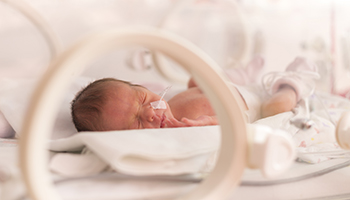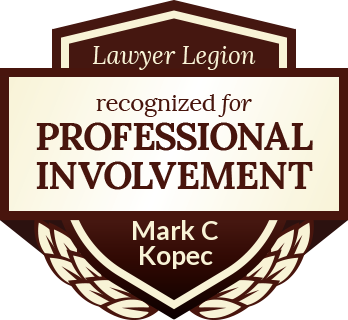Mark Kopec Now
NICU
Understanding the NICU and Birth Injuries: A Comprehensive Guide
The birth of a child often brings much joy and hope. However, for some families, this journey takes an unexpected turn when their newborn requires care in the Neonatal Intensive Care Unit, or NICU. The NICU is a specialized hospital unit for the care of critically ill or premature infants. The Kopec Law Firm provides this article to give a comprehensive overview of the NICU. It explores the NICU’s purpose and history. The article also discusses the conditions that necessitate a stay and the medical providers who work there. Finally, the article examines the critical link between the unit and birth injury medical malpractice. If your baby has been injured, call Baltimore NICU lawyer Mark Kopec
What is the NICU and Its History?
The NICU, or Neonatal Intensive Care Unit, is a ward to provide round-the-clock, intensive medical care to newborns. These units are equipped with advanced technology. They are staffed by a team of medical providers trained specifically to address the complex needs of fragile infants. The babies who are admitted to the NICU are often premature. They have low birth weight, or suffer from serious medical conditions, injuries, or birth defects.

The concept of a separate unit for newborns has a fascinating history. In the late 19th century, a Parisian pediatrician named Pierre-Constant Budin developed a system of special nurseries to care for premature infants. He also championed the use of incubators, which were showcased at world’s fairs by Dr. Martin Couney. However, this early form of specialized care was limited and not widely adopted in hospitals. The true evolution of the NICU began in the mid-20th century. The advent of life-saving technologies like the ventilator, along with a deeper understanding of infant physiology and infectious diseases, led to the establishment of the first modern neonatal intensive care units in the 1960s. These units transformed the survival rates and long-term outcomes for countless newborns who once had very little chance of survival.
Baltimore NICU lawyer Mark Kopec can review your child’s medical history and advise you on a birth injury medical malpractice case.
Medical Conditions That Cause NICU Admission
Babies are admitted to the NICU for a variety of reasons, many of which are linked to their stage of development or unexpected complications at birth. Some of the most common conditions include:
- Prematurity: Babies born before 37 weeks of gestation are premature. Their organs, including the lungs, heart, and brain, may not have fully developed. This necessitates respiratory support, temperature regulation, and specialized feeding.
- Low Birth Weight: Infants weighing less than 5.5 pounds (2.5 kg) at birth, often due to prematurity or a condition called Intrauterine Growth Restriction (IUGR), require intensive care to help them gain weight and thrive.
- Respiratory Distress Syndrome (RDS): A common condition in premature babies, RDS is caused by a lack of surfactant, a substance that keeps the lungs’ tiny air sacs (alveoli) open. This can lead to severe breathing difficulties, requiring mechanical ventilation or Continuous Positive Airway Pressure (CPAP).
- HIE: Hypoxic Ischemic Encephalopathy: This is a type of brain injury. It occurs when a baby’s brain doesn’t receive enough oxygen or blood flow for a period of time. It can be caused by complications during labor and delivery and often requires immediate, specialized treatment, such as therapeutic hypothermia (brain cooling the baby), to mitigate the extent of the damage.
- Meconium Aspiration (MAS): If a baby inhales meconium (their first stool) into their lungs before or during birth, it can cause severe breathing problems and inflammation.
- Sepsis: A serious bloodstream infection in a newborn, sepsis can be life-threatening and requires immediate and aggressive antibiotic treatment.
- Neonatal Jaundice: While mild jaundice is common, severe cases can lead to brain damage if not treated with phototherapy or, in rare cases, a blood transfusion.
- Congenital Anomalies: Birth defects of the heart, kidneys, spine, or other organs may require specialized care or surgery shortly after birth.
The Medical Team in the NICU
A NICU is a collaborative environment and has a multidisciplinary team of doctors and other medical providers. This team works together to provide comprehensive care for the infant and support for the family. The core members include:
- Neonatologists: These are pediatricians who have completed extensive training in the care of newborns and are the medical directors of the NICU. They oversee all medical care for the baby.
- Neonatal Nurses: These registered nurses specialize in the care of fragile infants. They are responsible for administering medications, monitoring vital signs, and providing hands-on care.
- Respiratory Therapists (RTs): RTs manage the complex respiratory equipment, such as ventilators and CPAP machines, ensuring the baby receives proper oxygenation and breathing support.
- Occupational and Physical Therapists: These specialists help with the baby’s motor development, positioning, and feeding, ensuring they develop skills essential for growth.
- Lactation Consultants: They provide support and guidance to mothers who wish to breastfeed or provide breast milk for their NICU baby.
- Social Workers and Case Managers: These professionals assist families with emotional support, resource coordination, and discharge planning.
- Pharmacists and Dietitians: They precisely manage the baby’s medications and nutritional needs.
Baltimore NICU lawyer Mark Kopec will assess the work of the medical providers during your child’s admission to the NICU.
Tests and Treatments in the NICU
The NICU utilizes a wide range of diagnostic tests and therapeutic treatments to monitor and improve a baby’s health.
Diagnostic Tests:
- Blood Tests: Used to check for infections, genetic conditions, blood sugar levels, bilirubin levels (for jaundice), and blood gas levels to measure oxygen and carbon dioxide and fetal acidosis.
- Imaging: X-rays check lung development and position of feeding tubes. Ultrasounds, particularly of the brain (cranial ultrasound) or abdomen, help doctors visualize internal organs. In more complex cases, MRI or CT Scans provide detailed images of the brain or other organs.
- Monitoring Equipment: Continuous heart rate, breathing, and oxygen saturation monitoring are standard. Electrocardiograms (ECG or EKG) and Electroencephalograms (EEG) evaluate heart and brain function, respectively.
Baltimore NICU lawyer Mark Kopec can evaluate the tests your child received in the NICU.
Treatments:
- Respiratory Support: This can range from a nasal cannula for supplemental oxygen to a CPAP machine. In severe cases, it involves a mechanical ventilator.
- Phototherapy: For jaundice, babies go under special blue lights that help break down excess bilirubin in their blood.
- Feeding Support: Preemies may be unable to suck, swallow, and breathe effectively, so they receive nutrition through a small tube inserted into their stomach (gavage feeding) or through an IV (Total Parenteral Nutrition – TPN).
- Medications: Babies in the NICU may receive a variety of medications, including antibiotics for infections, surfactant to help their lungs mature, and pain relievers.
- Surgery: Some conditions, such as congenital heart defects or necrotizing enterocolitis (NEC), may require surgical intervention.
Medical Malpractice with Baltimore NICU Lawyer Mark Kopec
Medical malpractice is a professional negligence by a healthcare provider that deviates from the accepted standards of care, causing injury or death to a patient. In the context of neonates, malpractice can occur in two main ways: during labor and delivery, causing an injury that necessitates a NICU stay, or as a result of negligence within the NICU itself.
Malpractice Leading to a NICU Stay
Negligence during the birthing process can directly cause injuries to a baby and require admission to the NICU. These can include:
- Failure to Monitor Fetal Distress: A doctor or nurse may fail to properly monitor fetal heart rate. As a result, they miss signs that the baby is in distress and not receiving enough oxygen. This can lead to a hypoxic-ischemic event and HIE.
- Delayed C-section: If fetal distress is identified but a Cesarean section is not performed in a timely manner, the baby may suffer from oxygen deprivation, causing brain damage.
- Improper Use of Delivery Tools: The improper use of forceps or vacuum extractors can cause physical injuries to the baby, such as skull fractures, nerve damage (e.g., Erb’s palsy), or hemorrhaging.
- Failure to Diagnose Maternal Conditions: A doctor’s failure to recognize and properly manage maternal conditions like preeclampsia or gestational diabetes can lead to complications that harm the baby during delivery.
Malpractice Within the NICU – Baltimore NICU Lawyer Mark Kopec
Unfortunately, medical errors can also occur once a baby is in the NICU. The intensive nature of the care, the fragility of the patients, and the high-stress environment can sometimes lead to mistakes. These instances of potential negligence can include:
- Medication Errors: Administering the wrong medication, an incorrect dosage, or at the wrong time can have devastating consequences for a tiny newborn with a developing body.
- Failure to Treat Worsening Conditions: A medical team’s failure to diagnose a new or worsening condition. Examples are sepsis or necrotizing enterocolitis (NEC), which can lead to rapid deterioration and death.
- Improper Use of Equipment: Errors in the setup or management of ventilators, IV lines, or other critical equipment. These can cause injury, oxygen deprivation, or infection.
- Failure to Follow Protocols: Not adhering to established hospital protocols for hygiene, feeding, or monitoring. These can put a vulnerable infant at risk.
The NICU is a place of healing, but it is also a place of great vulnerability for the tiniest patients. Understanding the risks of medical malpractice, both during birth and in the NICU, is crucial for families navigating this difficult journey.
In conclusion, the NICU is a complex environment. It exists to provide specialized care for our most vulnerable patients, from preemies to newborns with complex medical conditions. While it is a place of hope and healing, the potential for medical malpractice, both leading to and occurring within its walls, is a serious concern for families. Understanding the intricate workings of the NICU, the medical team, and the potential for negligence is the first step in seeking justice and ensuring accountability for injured infants.
Next Step: Call Baltimore NICU Lawyer Mark Kopec
If you have suffered harm, then it is important to consult with a medical malpractice attorney. We can evaluate your case and help you determine whether you have a valid claim.
Visit our free consultation page or video. Then contact the Kopec Law Firm at 800-604-0704 to speak directly with Attorney Mark Kopec. He is a top-rated Baltimore medical malpractice lawyer. The Kopec Law Firm is in Baltimore and pursues cases throughout Maryland and Washington, D.C.





